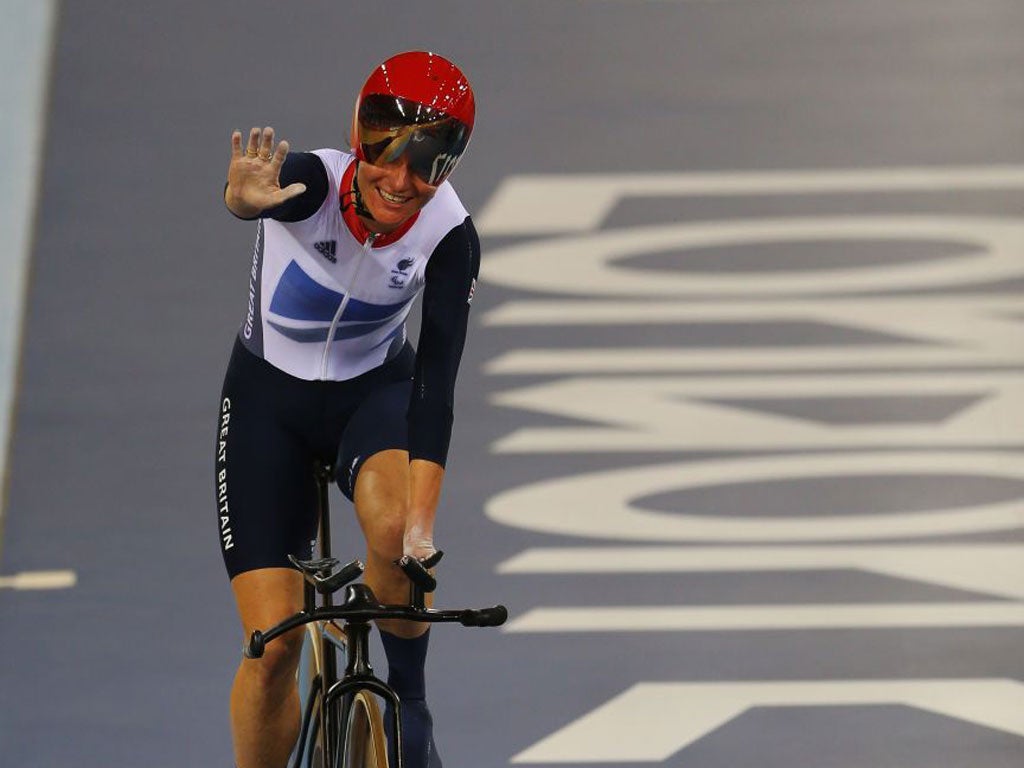Shelagh Fogarty: We've started so we must finish Paralympic Games legacy
There are variations in how geared up gyms and pools are

Your support helps us to tell the story
From reproductive rights to climate change to Big Tech, The Independent is on the ground when the story is developing. Whether it's investigating the financials of Elon Musk's pro-Trump PAC or producing our latest documentary, 'The A Word', which shines a light on the American women fighting for reproductive rights, we know how important it is to parse out the facts from the messaging.
At such a critical moment in US history, we need reporters on the ground. Your donation allows us to keep sending journalists to speak to both sides of the story.
The Independent is trusted by Americans across the entire political spectrum. And unlike many other quality news outlets, we choose not to lock Americans out of our reporting and analysis with paywalls. We believe quality journalism should be available to everyone, paid for by those who can afford it.
Your support makes all the difference.Legacy. A nice crisp, efficient-sounding word. Easy to say, harder to achieve. The Government and Locog say it was always at the heart of the London bid for the 2012 Olympic and Paralympic Games and pretty soon we'll start to see if all the talk is translated into money and action.
The coalition says that it is investing £8m this year through Sport England to develop more grass-roots projects to help get disabled people into sport. Disability Sport Wales received more than £1m this year, Sport Scotland spent more than £500,000 on disability sport last year, and Sport Northern Ireland plans to invest £1.7m next year on improving opportunities for people with disabilities. Each of the sporting bodies also gives additional funding directly to individual sport governing bodies, and also through community programmes. Well, that sounds like a start.
It's obvious from both Games that the impact of talent-finding projects is beginning to be felt in the medals haul, and the promise shown by young Paralympic athletes like cyclist Crystal Lane. She might not have come away with any medals from these Games but she put down a serious marker for Rio in 2016. Between now and then how many disabled youngsters, having watched the Paralympics, will find it easy to take up a sport or develop to elite level in one they already do?
Freya Levy is 16 and plays wheelchair basketball after being diagnosed with muscular dystrophy a couple of years ago. She found out about the sport by going online to look for a disability sport she could do. Her eyes are firmly fixed on 2016 and she says it wasn't too hard to find opportunities in her local area. However, she thinks more needs to be done in building awareness of grass-roots sports so that people can access information they need about local sports and fitness facilities. She also thinks GPs could be at the forefront of informing disabled youngsters about what's available to them in disability sports.
A theme which emerged during my time at the Paralympic Games has been the apprehension a lot of disabled people feel about going to a gym or a local pool. Marc Woods, a multiple Paralympic swimming champion, says there are big variations in how geared up gyms and pools are for people with a disability. Blind BBC reporter Damon Rose says he feels nervous about using a gym and it's put him off taking up any sport over the years. The Paralympic Games, he told me on air, had changed his outlook. There you go! A spot of legacy to keep us going.
Cath McNicol is trying to put together a league in the sport of powerchair football. In a conversation with the Sports Minister, Hugh Robertson, she explained how the cost of chairs can be prohibitive and the bureaucracy around applying for funding can be daunting and overly complex. The Minister firmly believes the effects of legacy are already being felt, insisting that despite deep cuts in council spending across the UK, the Government is urging local authorities to put sport at the very top of their agendas.
A BBC investigation has found more than a third of councils in the UK have cut back their public sports facilities in the past three years. Three hundred and seventy-five sites have either closed or reduced their provision. Radio 4's You and Yours asked every council in the country if they'd closed or part-closed any sports facilities in the last three years, or if any had cut their opening hours. Almost 350 councils replied. A fifth of them said they'd closed one service or more in the past three years. That could be anything from a leisure centre, swimming pool or stadium to a football pitch or tennis court. Almost a quarter said they'd cut opening hours at one or more of their venues. In total, 150 facilities have closed and more than 200 have shorter opening hours. Will Government urging be enough to turn that particular tide?
Join our commenting forum
Join thought-provoking conversations, follow other Independent readers and see their replies
Comments